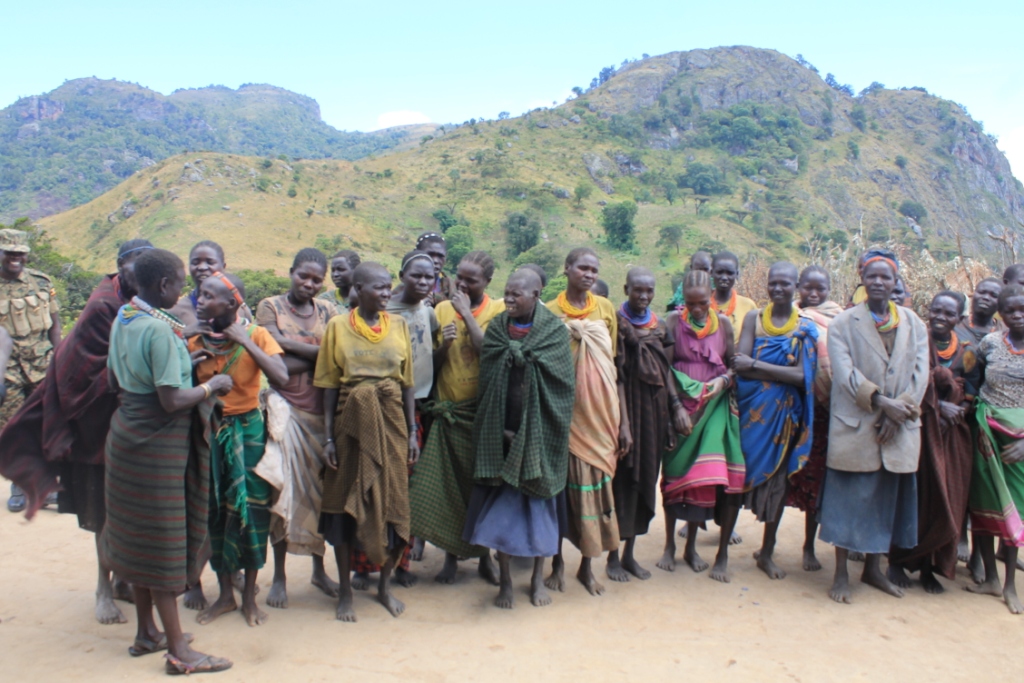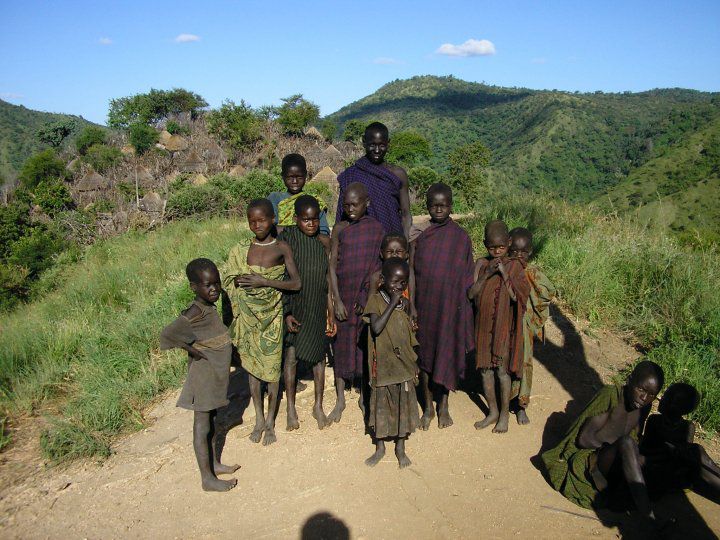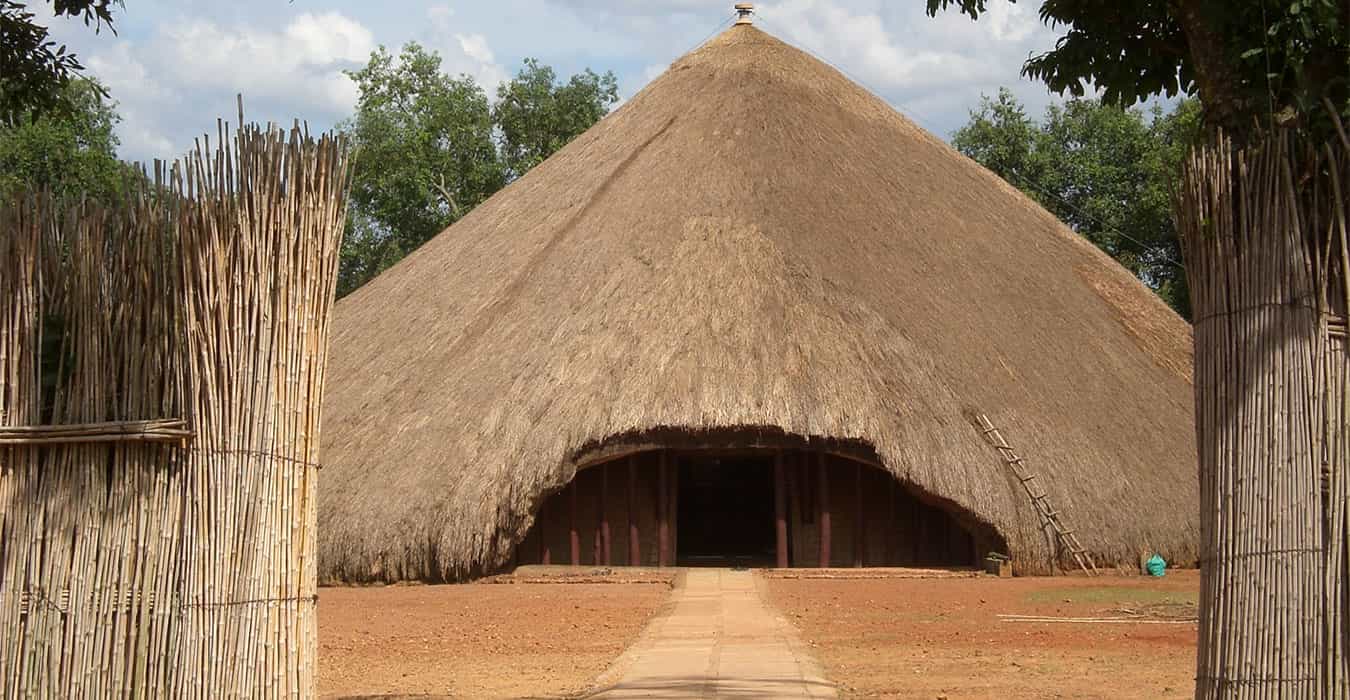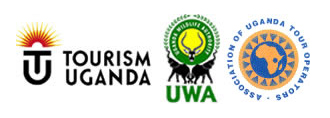
IK Tribe
IK Tribe
IK Tribe : A tiny ethnic community of 10,000 to 11,000 people lives in the Morungole Mountains. They are known as the 1k People. This region is located in the northeastern Ugandan Karamojong Region, straddling the boundary between Kenya and Kidepo Valley Park. The 1k are thought to have originated in Ethiopia and first settled in Kenya before moving to what is now Kidepo Valley Park. Prior to the advent of the larger Karamojong ethnic group, who also moved from Ethiopia, they were the first people to live in the area.
The 1k, who are acknowledged as an indigenous people of Uganda, were customarily hunter-gatherers living in the Kidepo Valley Park in the northeastern portion of Uganda, near Karamojong. Nonetheless, their style of existence was fraught with difficulties. Neighboring tribes like Tuposa of South Sudan, Karamojong of Uganda, and Turkana and Pokot of Kenya regularly raided them.
Their livelihoods were further disturbed by government intervention when customary hunting and gathering areas were turned into wildlife reserves. What followed was a forced migration of the 1k up Mount Morungole, where they are still found. They stopped raising goats, producing honey, subsistence farming, and herding cattle as a result of this change. Instead, in order to get necessities like beef, they barter with the Karamojong.

As evidenced by their name, which means “head of migration” or “first to relocate to their current location,” the 1k people take pride in their heritage. But the Karamojong, numbering over 300,000, vastly outnumber them, with only about 11,000 people living there.
Taking on a visit to the 1k Tribe on a Uganda safari, the Mountain People of Uganda staying on Mount Morungole promise an unforgettable cultural tour and hiking adventure set within incredible scenery. You can fully immerse yourself in a different culture and learn about a distinctive way of life through this encounter.
It will be an opportunity for you to become familiar with the customs and cultural practices of the 1k People. Learn about interesting traditions like paying the bride price, which is equivalent to 5 to 10 beehives, chickens, goats, or cash in place of cattle. Learn about the customs of everyday life in a 1k Village on Mount Morungole, the practice of polygamy within the community, and how children frequently live with their peers or grandparents from an early age. Now that neighboring tribes are a threat, the 1k no longer maintain cattle. Rather, goats are the main livestock on their farms, and they process some of their honey through beekeeping.
A unique chance to learn about an endangered African group of less than 11,000 people exists when one visits the 1k Tribe. As they work to maintain their way of life in the difficult mountainous terrain that provides some of Uganda’s most stunning scenery, their future is uncertain.
Visiting the 1k Tribe – The Hike up Mount Morungole.
Although getting to the 1k Villages on Mount Morungole is not easy task, it is now easier to do so because of a US Forest Service trail. On this all-day adventure, you will navigate rugged mountains with 1k-fluent guides. Without a doubt, one of the highlights of your safari to Uganda will be your walk to the villages and your interaction with the 1k Tribe.
It takes a moderate level of fitness to navigate the mountainous terrain. Reaching the summit of Mount Morungole, which is 2,749 metres above sea level, can be difficult for people who are unprepared. This 8-kilometer track (16-kilometer total round trip) has a strenuous climb up to the settlements.

Still, the tough ride is well worth it when you see the amazing view as you ascend. The views get more breathtaking as you ascend higher, with valleys opening up in front of you and Kenya’s Eastern Rift Valley which includes Lake Turkana in the distance.
You will be greeted with traditional dances upon entering the villages, frequently led by the 1,000 people dressed in their best. Similar to how tourism has benefited the Batwa People in southwest Uganda, the 1k community embraces tourists because it brings in extra revenue and helps ensure the tribe’s sustainability.
Take advantage of the chance to learn more about the way of life of the 1k inhabitants during your guided tour of the village. You’ll notice that different approaches are used to raising children here; for example, polygamy is common in families, formal schooling is not as important, and self-reliance is highly regarded. Notably, Kampala International University is home to a young 1k woman who is on track to become the tribe’s first graduate from a university.
It should be noted that in 2016, the 1k People made history when they elected their first member of parliament to the 10th Ugandan Parliament.
Additionally, the arrival of a young woman from the tribe at a university in Kampala signifies further progress and opportunity for the 1k community.
Visiting the 1k Tribe – The Practical Advice for a successful visit.
A visit to the 1k Tribe provides a unique and genuine cultural encounter. This visit offers an authentic window into the daily lives of the 1k people by taking you right into the centre of their hamlets, unlike any staged event.
The people of 1k Villages will extend a hearty welcome to you as soon as you arrive. This off-the-beaten-path excursion gives you the chance to fully experience Africa as it truly is something you won’t often get to do on the continent.
It is vital that you honor and value the customs of the 1k people when you are there. Recall that they are people who are as excited to learn about you as you are about them, not just photo subjects.
In keeping with African customs, guests are expected to offer gifts. We really appreciate useful things like sugar, salt, oil, wheat, and other necessities. Although cash is also accepted, there are no shops in the village that accept it.







